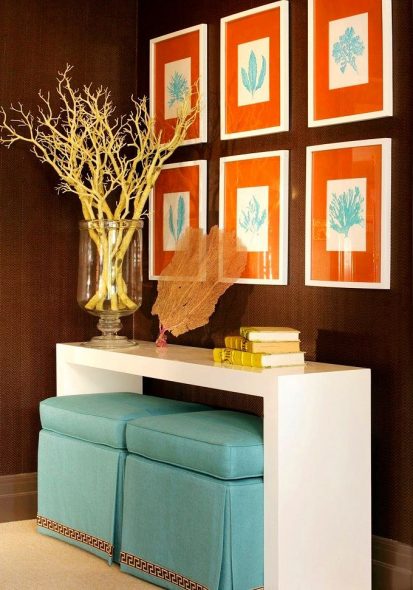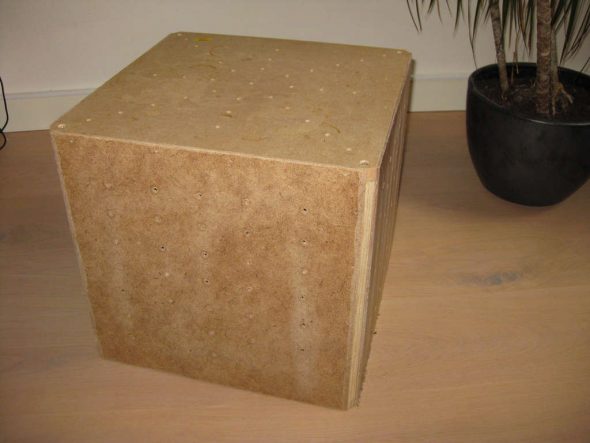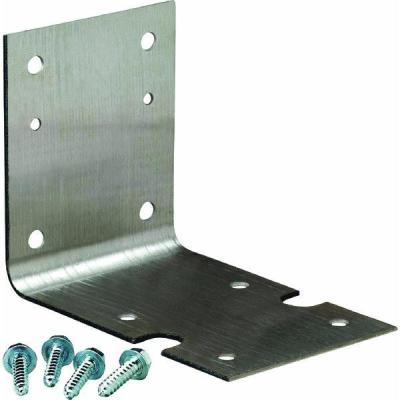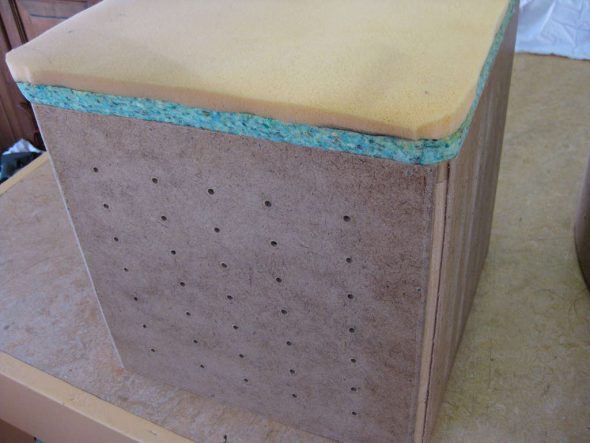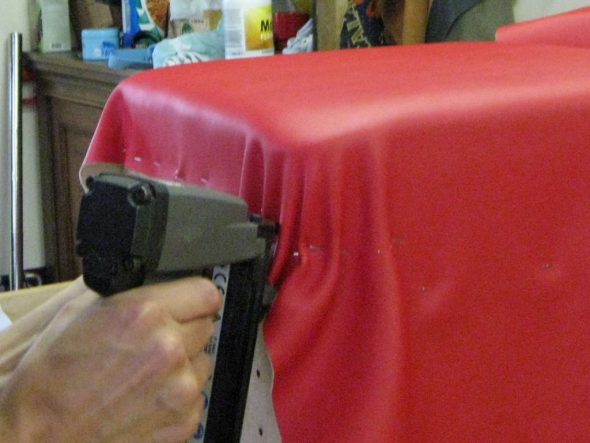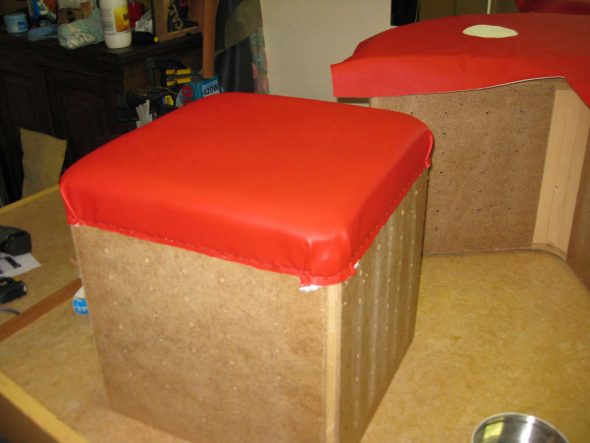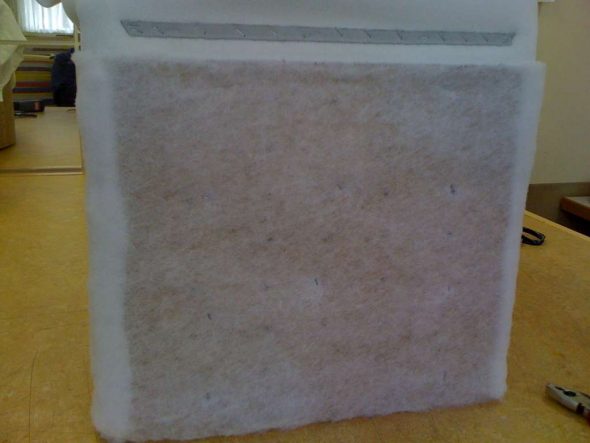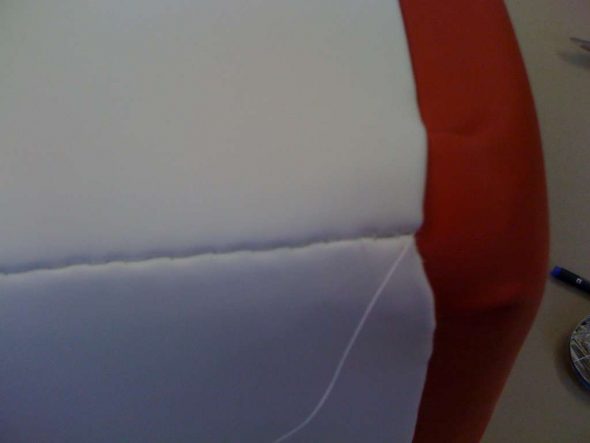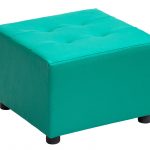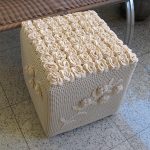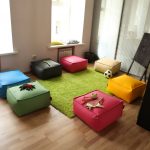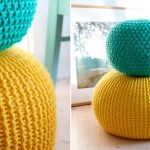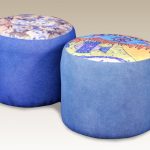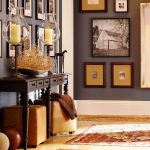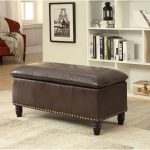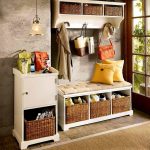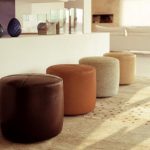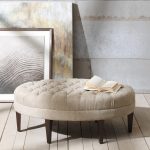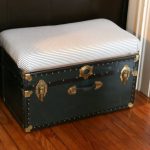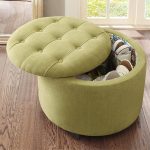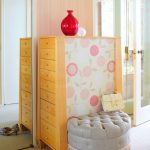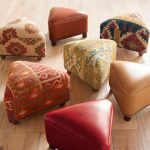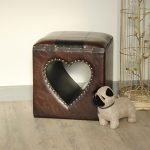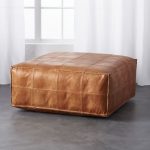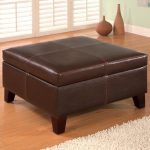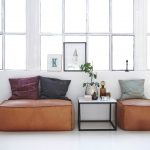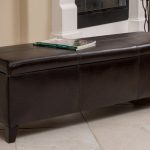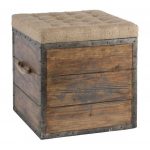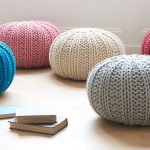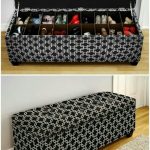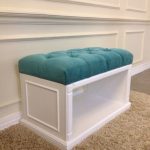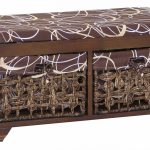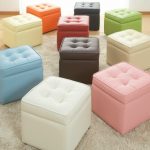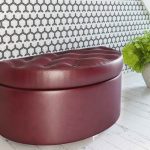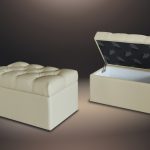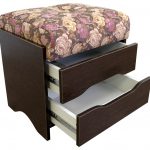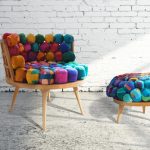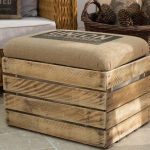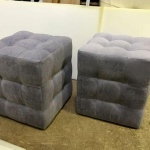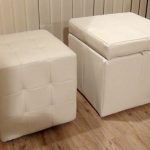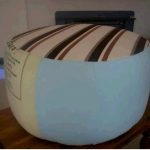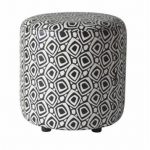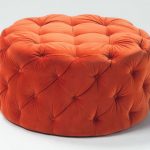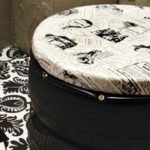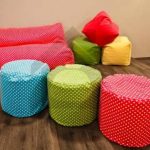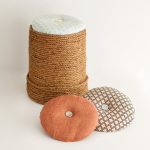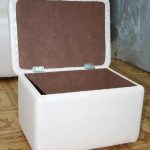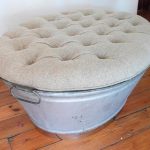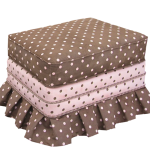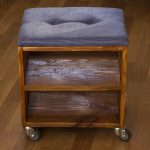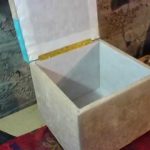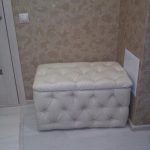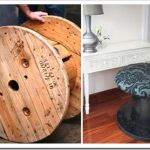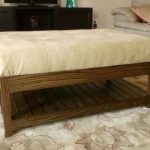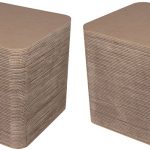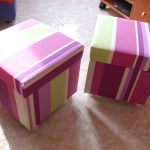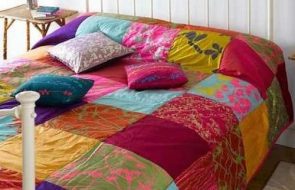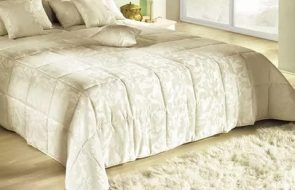The pouf is a simple and compact design, due to which such a product has become popular and has settled in every person’s hallway for a long time.
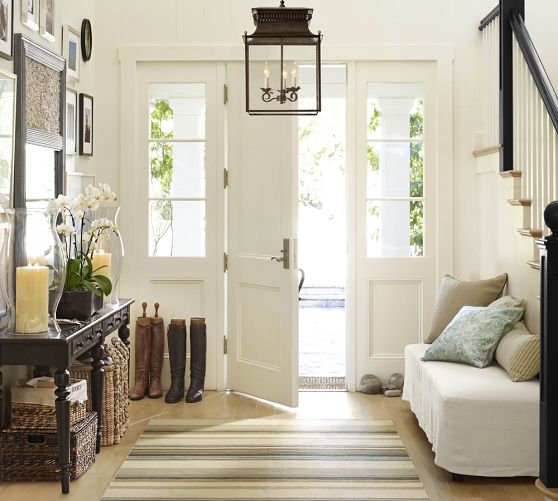
Updating even such a small piece of furniture can bring some pleasant changes to the interior of the hallway.
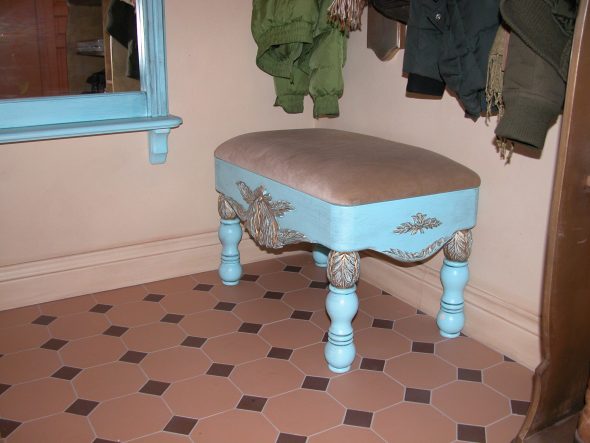
An ottoman that is not bought in a store, but made with your own hands, will be especially pleasant, as it will be able to give the room its warmth and coziness. A handmade thing always looks unique, as it adds individuality to the design. It is nice to give such a product to friends and relatives, so that you can leave a piece of yourself with them forever.
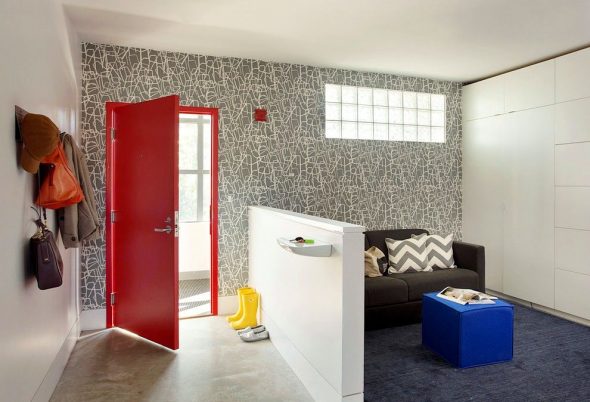
Content
Types of poufs
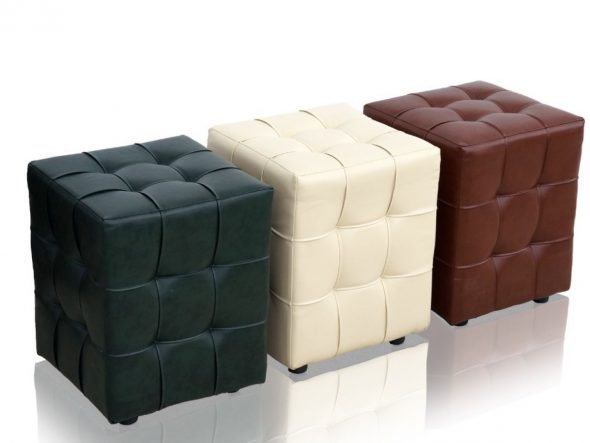
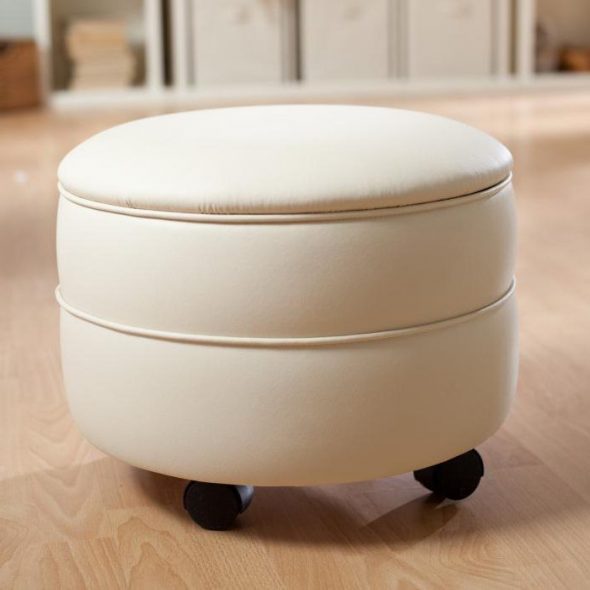
There is an abundance of all kinds of pouf models, which differ from each other in shape, functionality or application options.
| Model | Characteristics |
| Box | The most common version of an ottoman that does not take up much free space. |
| It has a small storage system that can accommodate several pairs of shoes. | |
| It will suit any interior style, as it is available in various colors and made from many materials. | |
| Cylindrical shape | Models are made on wheels, legs or without a stand at all. |
| They help to smooth out the corners in a room and, if necessary, the interior. | |
| They can become the main accent of the hallway if they are made in bright colors or create an unusual design for the room. | |
| Pedestal | A practical, multifunctional version of the product, allowing you to sit on it and place all sorts of small things at the same time. |
| A successful model for those who have a large number of shoes, accessories and other small items, it allows you to use the pouf 100%. | |
| It is made with a miniature table, on which a table clock, figurines, a landline telephone or a mirror will find a place. | |
| Corner shape | Allows you to use the corners of the hallway to their full potential. |
| Household members will have much more storage space at their disposal. | |
| The model can consist of a system of poufs that together form a soft large triangular seat. | |
| Pouf with drawer | The option is similar to the pouf-cabinet, but does not include a table. |
| The drawers are located under the seat and create an extensive storage system for various items. | |
| The functional component of the pouf does not harm the appearance, creating an attractive and elegant decorative element. |
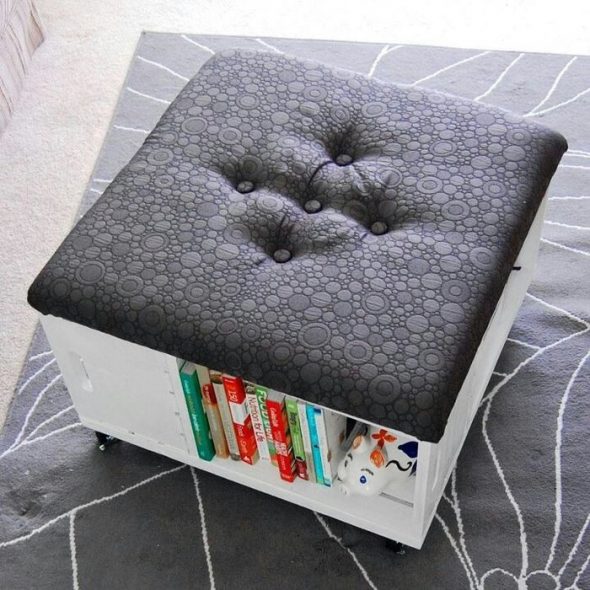
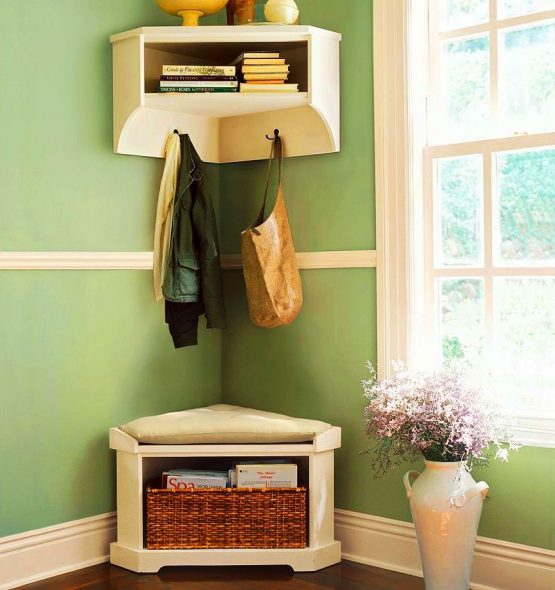
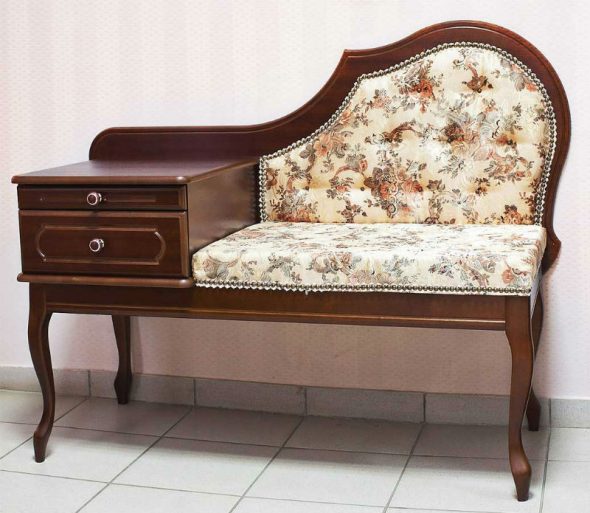
The process of making a pouf with step-by-step instructions
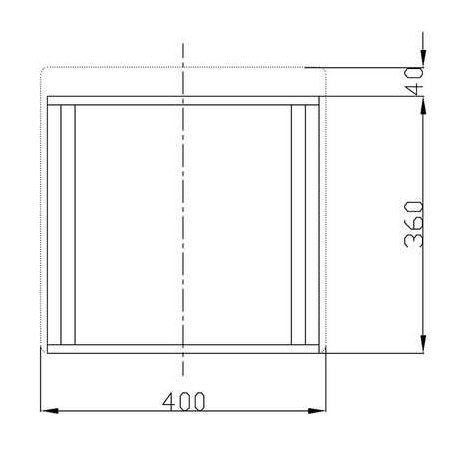
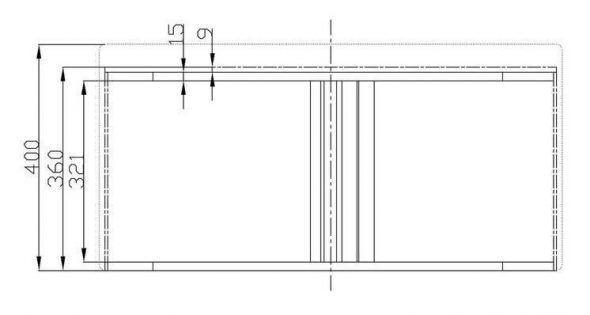
Making a pouf with your own hands consists of three stages: forming the frame, covering and decorating. To make a soft pouf with a square storage system, you will need the following materials and tools:
- screwdriver or screwdriver;
- construction stapler;
- sewing machine, nylon or capron threads;
- scissors, tape measure or ruler, marker, glue;
- jigsaw, drill;
- self-tapping screws;
- timber;
- chipboard, MDF or plywood sheet;
- foam rubber;
- covering fabric (tapestry, velor);
- furniture wheels and screws for fastening.
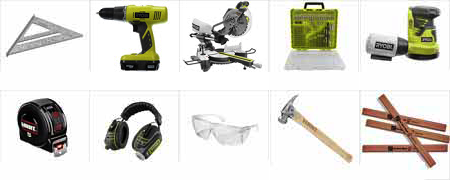
The frame is manufactured as follows.
- 6 square blanks are cut out of the sheet for the sides, cover and bottom of the ottoman. The timber is sawn into 4 identical pieces. Then the square blanks are connected to each other with bars using a screwdriver and self-tapping screws, after which the bottom is screwed on.
We assemble the racks and attach the bottom, lid and sides - The removable seat is complemented by stops to prevent slipping during use or storage.
For fastening we use corners
The upholstery and covering of the ottoman consists of several stages.
- A long strip of foam rubber is cut to the size of four sides, glued with glue and secured with a stapler. Then foam rubber is taken according to the shape of the seat with an allowance. It is also glued and secured with a stapler on the back side.
We glue soft foam rubber to the top edge - A strip is cut from the upholstery fabric along the length of the four sides with an allowance for fastening. Then the piece of fabric is stitched and a ring is formed, which is stretched over the pouf. The fabric is folded under the bottom and fastened with a stapler, the same thing happens at the top of the walls.
We cover the upper plane of the set with upholstery fabric and fix it to the surface using a furniture stapler. Trim off excess fabric from the top of the pouf - To finish the seat, a cover is sewn and put on. After that, the edges of the cover are folded under and secured with a stapler. If there is elastic fabric, the seat is covered without showing clear angles, becoming a single product.
We fix four squares of fabric of equal sizes, sewn together, on the sides of the cube, fasten them on the upper edge with cardboard strips, and on the lower edge with metal staples. We cover the cube with a cover
Advice! When attaching the upholstery, use staples as much as possible, go around the entire perimeter of the pouf. This way, the finished item will last for many years.
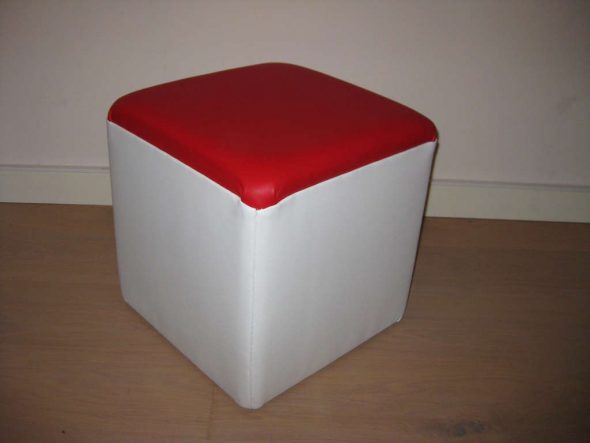
Attaching wheels to the finished product is done in several steps.
- The wheels are screwed to the ottoman using a screwdriver.
- The stitches are fixed at a distance of 3 cm from each corner.
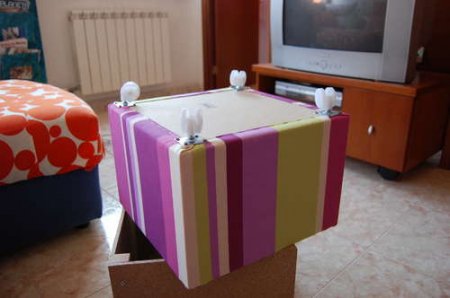
Advice! The outer side of the pouf near the wheels and the inner surface should be varnished. This will protect the piece of furniture from moisture.
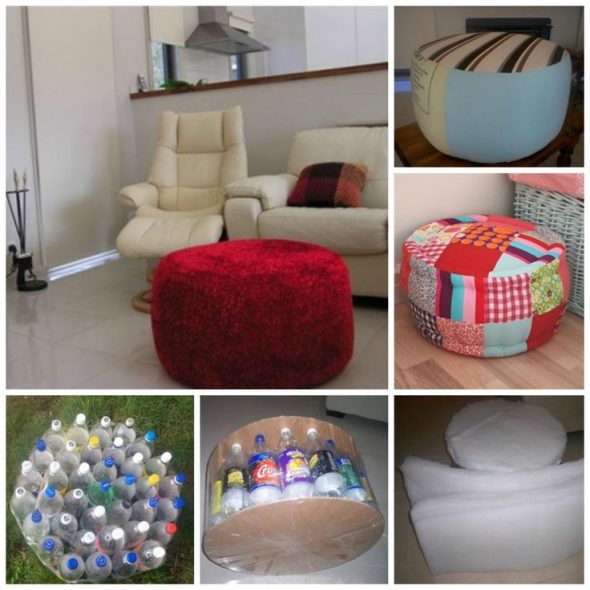
Decorating the finished product
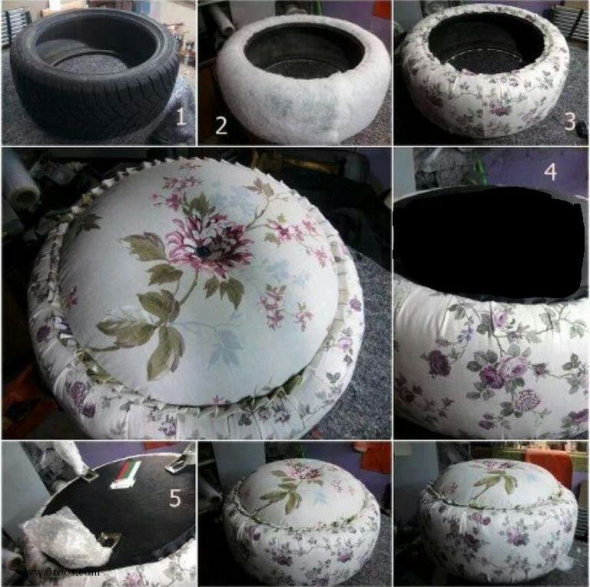
The pouf can be decorated with jute rope, wrapping it around the side walls of the item.
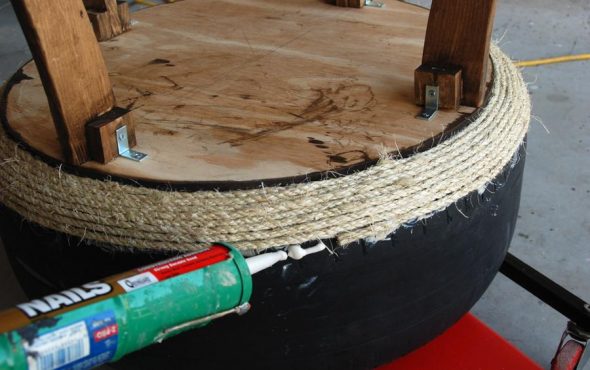
Also often used for decoration are buttons that are punched to the base with a special gun, creating interesting bumps. This option is very popular, not only among ottomans, but also other pieces of furniture.
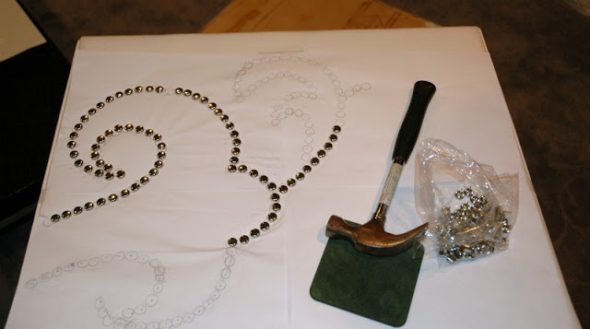
In a similar way, anyone can create a pouf of different shapes and sizes with their own hands. The product will fit perfectly into a hallway of any layout. It can perform 3 functions at once: serve as a soft, comfortable place to change shoes, a necessary storage system for important items and small things, an elegant interior element suitable for many styles of hallway design.
